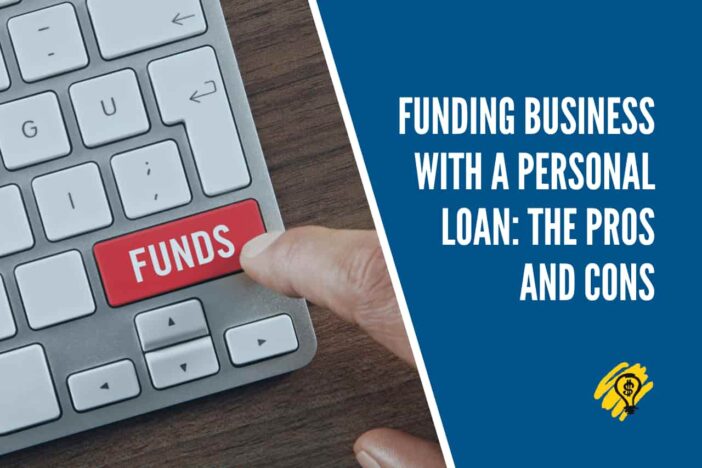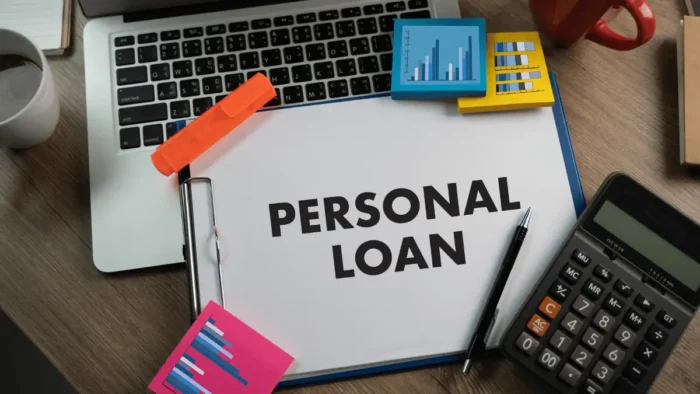Are you considering using a personal loan to finance your business? When you’re starting a business, there are many things to think about. One of the most important decisions you’ll make is how to fund your business.
Several options are available, including loans from friends and family, bank loans, and personal loans. Personal loans are becoming an increasingly popular option for small business owners.
This blog post will explore the pros and cons of using a personal loan to fund your business. Let’s first define what these loans are.
What are Personal Loans?
Personal loans are unsecured loans that you can use for various purposes. Unlike business loans, which are typically used for specific purposes, personal loans can be used for anything you want and are tied to your personal credit score. This means that the interest rate on a personal loan is usually higher than on business loans.
As seen on these Singaporean personal loans, the loans are typically available in two forms: fixed-rate and variable-rate loans. Fixed-rate loans have an interest rate that stays the same for the life of the loan, while variable-rate loans have an interest rate that can change over time.
Pros of Using Personal Loans to Fund Your Business
There are several advantages to using personal loans to finance your business. Some of these advantages include:
- Easy to Obtain: Personal loans can be easier to obtain than other types of loans. This is because personal loans are based on your credit score, not the creditworthiness of your business. This makes them a good option for people with a bad or no credit history. However, it’s important to remember that just because a personal loan is easy to obtain doesn’t mean you should take out a loan you can’t afford.
- Flexible Use: Personal loans can be used for any purpose, which gives you a lot of flexibility in how you use the money. You can use the money to buy new equipment, finance marketing campaigns, or anything else you need.
- Lower Interest Rates: Personal loans usually have lower interest rates than credit cards. This is because personal loans are unsecured, which means there’s less risk for the lender. You do not have to worry about your collateral being seized if you can’t make your payments.
- Higher borrowing limits: Personal loans typically have higher borrowing limits than credit cards. This means you can get the money you need to finance your business without worrying about maxing out your credit card.
Disadvantages of Using Personal Loans to Fund Your Business
There are also some disadvantages to using personal loans to finance your business. Some of these disadvantages include:
- Interest rates can be higher: As we mentioned earlier, personal loans typically have higher interest rates than business loans. This is because they are unsecured, and there’s more risk for the lender.
- You’re personally responsible: When you take out a personal loan, you’re personally responsible for repaying the loan. If you can’t make your payments, your credit score will be impacted. In addition, the lender can take legal action against you if you default on your loan.
- Requires good credit: Personal loans are based on your personal credit score. This means you need to have good credit to qualify for a loan. If you have bad credit, you may not be able to get a personal loan.
- Fees and penalties can be high: Personal loans can have high fees and penalties if you miss a payment. This can make it challenging to repay the loan, and you may default on the loan.
As you can see, there are both pros and cons to using personal loans to finance your business. You’ll need to weigh these factors carefully before deciding whether or not to take out a loan.
What to Consider Before Applying for a Personal Loan
If you’re considering taking out a personal loan to finance your business, you should keep a few things in mind. First, make sure you have a solid plan for how you’ll use the money. Personal loans can be used for any purpose, but it’s essential to have a plan so that you don’t end up wasting money.
Second, make sure you can afford the payments. Personal loans typically have higher interest rates than business loans, so you’ll need to make sure you can afford the payments. Finally, make sure you have good credit. Personal loans are based on your personal credit score, so you’ll need to have good credit to qualify for a loan.
If you’re considering taking out a personal loan to finance your business, make sure you understand the pros and cons. Personal loans can be a good option for people with good credit and the ability to repay them, but they can also be a risky proposition. It would be best to always speak with a financial advisor before taking out any loan. Ensure that you understand the loan terms and that you can afford the payments.





